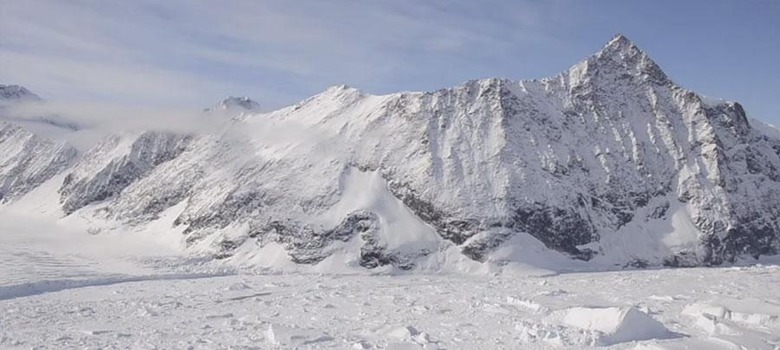11,000-Year Old Ice Shelf About To Disappear Forever
NASA confirms that Antarctica's Larsen B ice shelf is becoming unstable and will soon break up and melt. A team is currently investigating the ice shelf is lead by Ala Khazendar of NASA's Jet Propulsion Laboratory (JPL) in Pasadena, California. "Although it's fascinating scientifically to have a front-row seat to watch the ice shelf becoming unstable and breaking up, it's bad news for our planet," said Khazendar. "This ice shelf has existed for at least 10,000 years, and soon it will be gone."
This team of researchers with NASA have found this ice shelf to be deteriorating rapidly. Increasing fragmentation, faster free water flow, and large cracks developing – none of this is good news for the quickly thinning body of ice.
"These are warning signs that the remnant is disintegrating," said Khazendar.

Two of the Larsen B's tributary glaciers are flowing faster than ever before, thinning out rapidly.
This NASA-based group predicts that the shelf will shatter before the end of the decade.
That means gone.
Done for.
No more shelf.
As you'll see above, Khazendar confirms the bad news. "In 2002, two thirds of it collapsed in six weeks."
"In the intervening period between 2002 and now, the remaining part of Larsen B has also been weakening very, very quickly."

Above on the left you'll see Larsen A and Larsen B marked in red, via Wikipedia. On the right you'll see a Google Earth capture of this region. Notice how it's in blocks – likely because of two reasons:
1. Google Earth's partners capturing the planet don't often focus on areas as sparsely visited/populated as this.
2. The ice is melting/moving so quickly that Google's image-stitching software is bugging out.
Again, it's not good – not good at all – that an ice shelf like this is collapsing.
At the same time it IS a "rare opportunity," as Khazendar suggests, to witness such an occurrence.
"Now we have this rare opportunity of this ice shelf destabilizing and eventually collapsing in front of our eyes. And that will give us incredibly valuable lessons that we could use to understand what might be happening elsewhere in the future."
"It is certainly a warning," said Khazendar this week, "the conclusion is inescapable."
